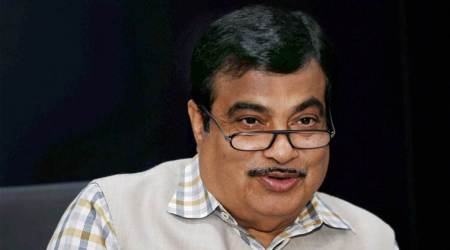 Among Gadkari’s tasks will be taking forward a move to enact a Ganga law.
Among Gadkari’s tasks will be taking forward a move to enact a Ganga law.
The task of cleaning the Ganga, one of the government’s key promises and one of the Prime Minister’s showpiece schemes, falls on the shoulders of Road Transport and Highways Minister Nitin Gadkari, now also Minister for Water Resources, River Development and Ganga Rejuvenation. He replaces Uma Bharti, during whose tenure noticeable progress has been made in irrigation but nothing significant in cleaning the Ganga and water reforms, although she often made promises of cleaning the river within unrealistic time lines — 18 months or two years.
Among Gadkari’s tasks will be taking forward a move to enact a Ganga law, on which there has been little movement after a committee headed by Justice (retired) Giridhar Malviya submitted its report last May. Bharti had said more consultations were required and a bill would take time.
Bharti’s first two years saw frequent changes at the top of the National Mission on Clean Ganga, and it was put directly under the charge of the water resources secretary, a joint-secretary-ranked position. In those two years, not a single new pollution-related project began. In fact, the Prime Minister’s Office used to deal directly with bureaucrats to monitor Ganga projects. Last year, the government strengthened and elevated NMCG and reduced her ministry’s role in it.
Gadkari takes over when work on the Ganga has gained some momentum over the last 10 months; by April new projects worth Rs 2,100 crore had been approved. Last week, the first contracts for sewage treatment plants under the hybrid annuity model were made.
In irrigation, Bharti had made some quick progress on completing projects under the Accelerated Irrigation Benefits Programme since last year, and there was a major push for irrigation in the budget. A total of 99 unfinished projects were to be completed in three years, 18 of them by March 2017. Information from the ministry shows 15 of them have been completed or are nearing completion.
Gadkari’s tasks will include taking up the suggestions of the Mihir Shah committee report on institutional water reforms, which has recommended a multi-disciplinary National Water Commission in place of the existing engineering-heavy Central water Commission and National Ground Water Authority.

